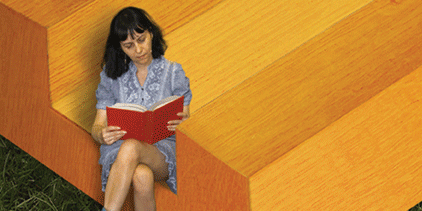As GPs we never stop learning, and we never stop feeling like we are being tested or examined
Most of us in the medical profession will agree that our journey through medical school, internship and then specialisation, felt like a never-ending cycle of study, exams, rostered shifts, jubilation or despair, and repeat.
Remember the feeling when we crossed that first hurdle, when we got into medicine? That mixed sense of relief and nervous excitement. In my case, I remember feeling an enormous weight had been lifted off my shoulders knowing I would never have to sit the GAMSAT again.
Little did I know that the marathon medical school exams would make the GAMSAT look like a simple, guaranteed-to-work, high school volcano experiment.
Four years of medical school followed. At times, the depth and breadth of knowledge that needed to be acquired seemed overwhelming, and the whole learning experience felt all-consuming, even though we still had our share of friends, family and forget-me-not social events.
Almost all of us have funny, sad, inspiring anecdotes from our time as students. But the exams were always a challenge. They were the Olympian obstacle race that we had to face regularly, and not every four years like the Olympics.
From multiple choice to OSCEs we ran that gauntlet until finally we made it through. Finally we felt free, relishing the thought of being able to work as real doctors without the constant spectre of having to study for exams (at least for a couple of years).
That feeling didn’t last long. Once we started as interns in the big hospital, medical school suddenly felt like a safe cocoon we should never have left.
The cycle of study and exams felt like child’s play compared to the stress in covering nights at a large hospital, where you are one of two interns looking after the entire hospital for a week with only one registrar.
I remember one night in particular after I assisting at my third resuscitation in emergency for the evening, I recalled practising a very similar scenario for the OSCEs as a student. Back then I had been surrounded by supportive study group friends, a compliant mannequin and multiple snacks. Now in the real world, real lives were at stake, I hadn’t eaten since breakfast and I hadn’t even had time for a wee stop despite needing to go for hours.
Nonetheless the hospital system was an interesting one. As stressful as it was I also remember the sense of camaraderie between junior doctors, the weekly “free coffee at lunchtime” set up to encourage us to “mingle”, the inspiring clinicians I met and the many patient stories I encountered as part of the clinical team.
These were some of things I particularly missed in my first few weeks as a GP registrar.
Suddenly I was in charge of making the clinical decisions. I was it. I believe, imposter syndrome is common at this stage. You second guess yourself. Does this swollen calf need an urgent ultrasound? Is this bilateral hip pain polymyalgia rheumatica?
As a GP registrar in my little consulting room I felt a million miles away from the tertiary hospital workspace where bloods, imaging and different specialist consults are readily available. Where patients are monitored 24 hours a day by competent nurses. In GP land, I had to make every clinical decision about investigations and management , without being able to easily cross-reference with specialists and at the same time ensuring patients were safe when they went home.
Supportive supervisors, like I had for most of my rotations, are invaluable. Their advice, example and encouragement helped build both competence and confidence. But even with the best access to these supervisors there will be times when, as a GP registrar, you need to work it out for yourself.
I remember having patients waiting …patiently, as I hurriedly scrolled through therapeutic guidelines, health pathways or dermnet, silently praying that a) I didn’t get it wrong and b) my patients didn’t think I was incompetent.
Every step of medicine has felt like the final frontier, only to be followed by a: ‘to be continued … episode’ .
Studying for the almighty fellowship exams certainly felt like the final frontier. A last major hurdle to becoming a specialist GP. A hurdle made all the more difficult by trying to fit the study in with full time registrar work.
But once again the hurdle was cleared. More MCQs and OSCEs were answered and another set of letters could now be added after my name.
So now I’ve made it. A fully fledged GP. No more hurdles to jump. No more mountains to climb.
But wait … Just recently, the GP registrar at our practice asked me a question about a patient’s rash uring an ECTV visit. Suddenly I felt I was in the spotlight, I was being examined, the eyes of both the registrar and the very pleasant assessor were upon me. Through a slightly nervous sweat (as I had never been on this side of the ECTV visit) I talked her through how it was most likely pityriasis rosea.
We never stop learning. And as doctors we never stop feeling like we are being tested or examined.
This is not necessarily a bad thing. This ongoing feeling of accountability encourages us to keep up to date with our clinical knowledge, be able to justify our clinical decisions and makes us approach every challenge with a degree critical thinking.
As a student, I felt that once I had completed my studies I would know all the breadth of medicine I needed. I don’t think I quite realised the journey of learning, from books, patients and colleagues would be a lifelong one.
And I definitely didn’t realise that this journey of learning would be one of the most exciting aspects of being a doctor.
Dr Aajuli Shukla is a GP based in Blacktown, Sydney and is GP Editor of The Medical Republic


